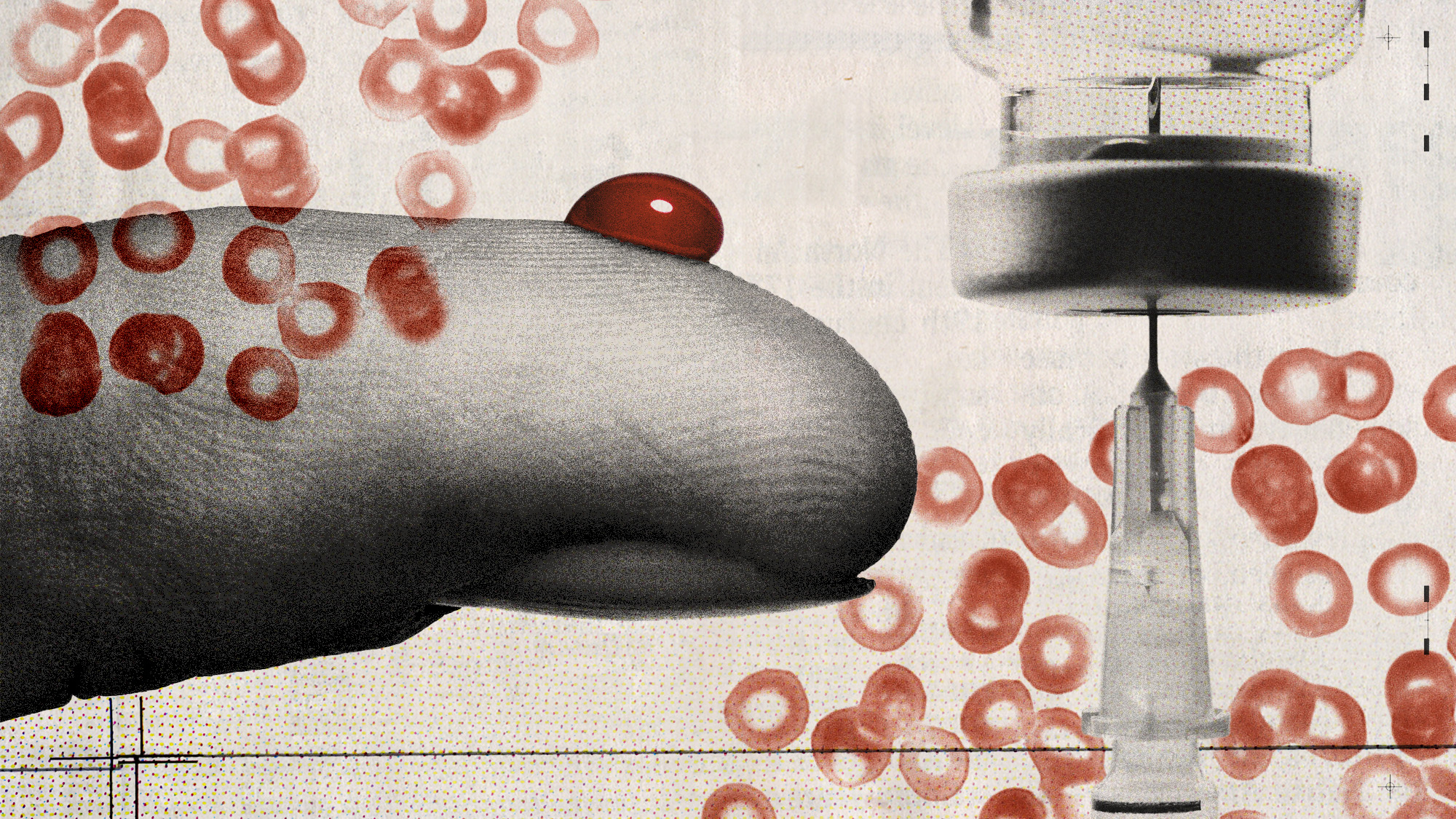A new subtype of diabetes was found and it may require different treatment
It is prevalent in Black Africans and Americans


A free daily email with the biggest news stories of the day – and the best features from TheWeek.com
You are now subscribed
Your newsletter sign-up was successful
There have long been two commonly recognized types of diabetes, but a third form may have been discovered, according to a study published in the journal The Lancet Diabetes & Endocrinology. And patients with this potential third type of diabetes may not be receiving the most effective treatment for their condition.
Type 3?
With Type 1 diabetes, your body's immune system "attacks the islet cells in the pancreas that make insulin," said UVA Health. This form is an autoimmune condition that tends to be hereditary. But when researchers looked at close to 900 people across Cameroon, Uganda and South Africa who had been diagnosed with Type 1 before the age of 30, they found that 65% of the people "did not have antibodies typically present in autoimmune diabetes nor did they have evidence of genetic predisposition to Type 1 diabetes," Britain's University of Exeter said in a press release. "We have always wondered why many young people diagnosed with Type 1 diabetes manage to survive without insulin, at least for some time, which would be unusual in typical Type 1 diabetes," said Jean Claude Katte, the lead author of the study, in the release.
Those participants also "did not have features consistent with other known types of diabetes" like Type 2, the university said. With Type 2, the "pancreas makes less insulin than it used to, and your body becomes resistant to insulin," meaning "your body has insulin but stops being able to use it," said UVA Health. This form can develop because of risk factors like obesity, diet, age or genetic predisposition.
Along with the many cases of the new subtype found in sub-Saharan Africa, researchers also uncovered a prevalence in Black Americans but not white Americans. "The fact that Black Africans and Black Americans had this novel non-autoimmune subtype of diabetes suggests both genetic and environmental factors may contribute to it," said New Scientist.
The Week
Escape your echo chamber. Get the facts behind the news, plus analysis from multiple perspectives.

Sign up for The Week's Free Newsletters
From our morning news briefing to a weekly Good News Newsletter, get the best of The Week delivered directly to your inbox.
From our morning news briefing to a weekly Good News Newsletter, get the best of The Week delivered directly to your inbox.
Deficient data
"If two out of every three young patients in parts of Africa actually have a different disease, the global numbers — and the research priorities that follow — need a hard look," said Earth.com. Health care and medical research have largely neglected marginalized communities, leading to gaps in knowledge about how disease affects different groups.
"At the moment, insulin remains the mainstay of treatment for this new diabetes subtype because they are also insulin-deficient," said Katte to New Scientist. But a different type of diabetes might mean that people with this third kind are not receiving the most effective treatment they could be. Additional research is still needed to determine what causes this particular type before better treatment can be administered.
A free daily email with the biggest news stories of the day – and the best features from TheWeek.com
Devika Rao has worked as a staff writer at The Week since 2022, covering science, the environment, climate and business. She previously worked as a policy associate for a nonprofit organization advocating for environmental action from a business perspective.
-
 The ‘ravenous’ demand for Cornish minerals
The ‘ravenous’ demand for Cornish mineralsUnder the Radar Growing need for critical minerals to power tech has intensified ‘appetite’ for lithium, which could be a ‘huge boon’ for local economy
-
 Why are election experts taking Trump’s midterm threats seriously?
Why are election experts taking Trump’s midterm threats seriously?IN THE SPOTLIGHT As the president muses about polling place deployments and a centralized electoral system aimed at one-party control, lawmakers are taking this administration at its word
-
 ‘Restaurateurs have become millionaires’
‘Restaurateurs have become millionaires’Instant Opinion Opinion, comment and editorials of the day
-
 Scientists are worried about amoebas
Scientists are worried about amoebasUnder the radar Small and very mighty
-
 Metal-based compounds may be the future of antibiotics
Metal-based compounds may be the future of antibioticsUnder the radar Robots can help develop them
-
 A Nipah virus outbreak in India has brought back Covid-era surveillance
A Nipah virus outbreak in India has brought back Covid-era surveillanceUnder the radar The disease can spread through animals and humans
-
 Is the US about to lose its measles elimination status?
Is the US about to lose its measles elimination status?Today's Big Question Cases are skyrocketing
-
 A real head scratcher: how scabies returned to the UK
A real head scratcher: how scabies returned to the UKThe Explainer The ‘Victorian-era’ condition is on the rise in the UK, and experts aren’t sure why
-
 Trump HHS slashes advised child vaccinations
Trump HHS slashes advised child vaccinationsSpeed Read In a widely condemned move, the CDC will now recommend that children get vaccinated against 11 communicable diseases, not 17
-
 Deaths of children under 5 have gone up for the first time this century
Deaths of children under 5 have gone up for the first time this centuryUnder the radar Poor funding is the culprit
-
 A fentanyl vaccine may be on the horizon
A fentanyl vaccine may be on the horizonUnder the radar Taking a serious jab at the opioid epidemic
